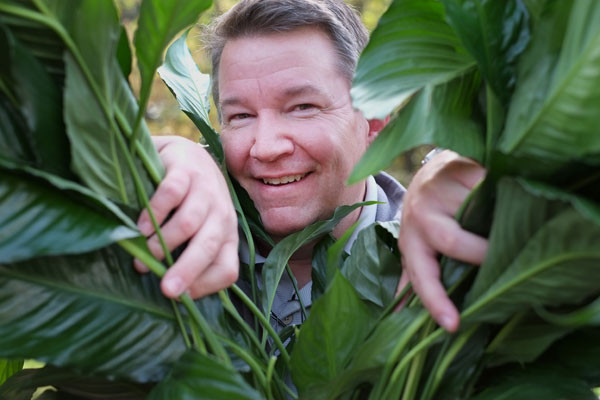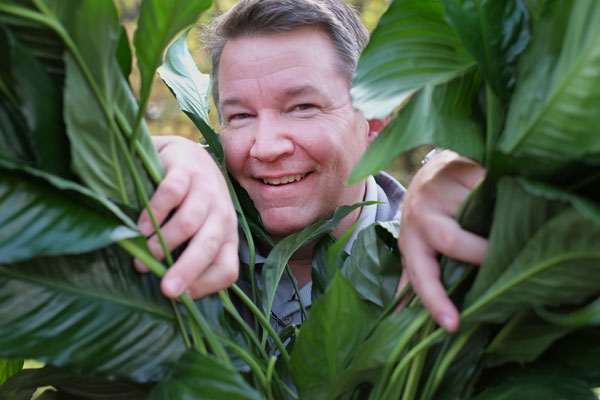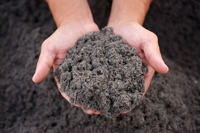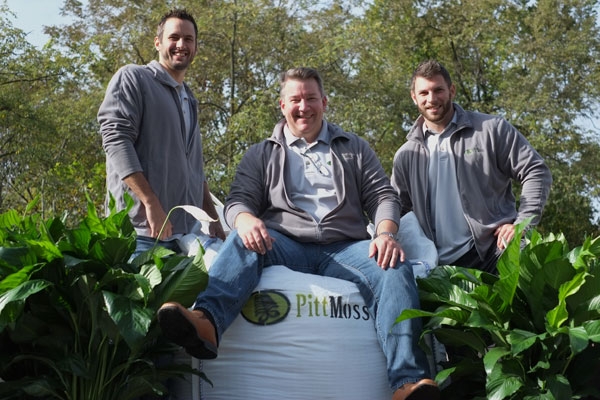This story first appeared on sister site Pop City.
At the age of 12, Mont Handley set aside the seedling kits and catalogues that fascinate most young people his age, took his life savings and bought a greenhouse.
“I’ve always been a plant guy,” says Handley, a life-long student of the natural environment. “I worked at my grandfather’s ice cream stand to save up the money and ordered it without my parent’s permission.”
Imagine his mother’s surprise when the truck pulled up in the driveway with the delivery. A heated debate ensued; his mother made him sell his mail-order greenhouse at a garage sale a few weeks later.
Undeterred, he continued to dream his dream of starting his own horticultural company. The dream came to pass earlier this year with the launch of PittMoss, a sustainable alternative to sphagnum peat moss for growers.
The name for the peat alternative was a natural fit, he says. The year was 2009. He was working for VisitPittsburgh as convention sales director and shopping, in his free time, for funding to get his company up and running.
“We were hosting the G20 and I was thinking about Pittsburgh’s great international reputation,” says Handley. “If Pittsburgh can have an environmental renaissance, why not tie the name to it?”
Handley’s search for an alternative to peat moss was driven by reports that the extraction of sphagnum peat moss was draining Canadian wetlands of a valuable resource. Peat habitats–found on only three percent of the Earth’s surface–are a powerful ecosytem that absorb carbon dioxide from the atmosphere, he says. Peat bogs actually store more carbon, meter for meter, than all the trees in the world, according to scientific sources.
PittMoss–a mix of organic additives and recycled paper–was created to replace the 1.1 million tons of Canadian sphagnum peat moss imported each year by greenhouses, nurseries and home gardeners across the country.
“I would see truckloads, and I mean bales of peat moss, coming in from Canada,” says Handley who grew up in Indiana. “We are destroying these carbon absorbing habitats to fill flower pots? Why?”
In 1994, Handley began experimenting to find a stable, peatless replacement, mixing paper and organic ingredients in a food processor in his kitchen. “With the glut of newsprint and paper products in the northeast, the supply is plentiful,” he says.
PittMoss succeeded in attracting funding from two sources: Pittsburgh’s Idea Foundry and an SBIR grant through Purdue University, his alma mater.
Handley now devotes himself full-time to the company. The production takes place on a three-quarter acre lot in North Huntingdon. Johnston the Florist, which grows flowers on 10 adjoining acres, is using PittMoss for its pointsettia plants that will be sold in local Kmarts this holiday season. Atlas Recycling in the South Side is supplying recycled newsprint.
With the world going digital, will newsprint and paper one day be in short supply? Idea Foundry, in doing its due diligence, made sure PittMoss was not trading one environmental problem for another, says Michael Matesic. The early stage accelerator confirmed that alternatives are in ample supply to feed PittMoss's demand going forward, including byproducts of cellulose insulation.
“It’s not about cutting down trees to make PittMoss,” Matesic says, “but to use alternative formulas so the environmental benefits are not lost.”
Truckloads of PittMoss began rolling out this month to commercial growers from Maine to North Carolina. Growers in Florida also have expressed interest. Trucking peat all the way from Canada is an expensive proposition, says Handley.
Will PittMoss save the Canadian peat bogs?
Not quite yet, Handley says. Development is underway to improve the moisture retention and soil enhancing properties of PittMoss. For now, most growers are supplanting their use of peat by 50 percent by amending with PittMoss.
“Mont is a passionate individual who has spent a long time working on his dream,” says Matesic. “It makes us feel good to know we’re working together to create a path to make his dreams a reality.”
DEB SMIT is Innovation & Jobs News editor for sister site Pop City. Send feedback here.



